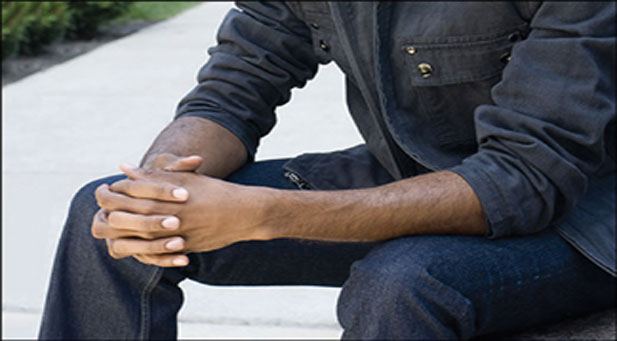
In Treatment: Rasheed Thomas
By Tomika Anderson
One in a series of articles about Black people living with HIV/AIDS who are considering treatment, successfully adhering to their regimen and/or getting to undetectable.
While many of his peers were out attending back-to-school mixers, football games and tailgating parties a couple of months ago, Rasheed Thomas* was usually hiding out in his dorm room, literally afraid for his life. That’s because up until this past September, the 22-year-old junior, who was diagnosed with HIV in April, was not yet on any medication and suspected that his health wasn’t good. The last time he had gone in for a check-up, which was in June, his CD4 count was 399. “Anything below 500 is bad,” the Mississippi biology major says of the white blood cells helping his body fight infection. He’d also been experiencing rashes and memory loss.
“I broke out on my legs and inner thighs,” reports Thomas. “I also got bad headaches every now and then. Plus, I feel like I forgot stuff. I’d wind up remembering, but it’d take some time,” he recalls.
But Thomas wasn’t skipping doses because of the unwelcome side effects that often accompany ARV drugs. He wasn’t on any meds because despite having health insurance, he couldn’t afford them.
“I bought insurance before I knew I was positive,” Thomas says of his first attempt to get the medical attention he knew he needed. Although the college student, who works two jobs, thinks his mom has health care, he didn’t know that under the Affordable Care Act, her plan could cover him until he was 26 years old. Now that he does know, he’s afraid to ask her because, even though she won’t know unless he tells her, Thomas is dealing with the stigma of being HIV positive.
“My plan covered me, but the amount of money I’d have to pay for antiretrovirals was astronomical,” he explains somberly of the $12,000 out-of-pocket expense he would incur each year for ARVs. “I would have been better off receiving government assistance!” Thomas says.
So you can imagine his relief once Thomas found out he did qualify for government help. “I did a little research online and found out that there was a pro-gram that would actually pay for my meds,” says the student, referring to the government-funded Ryan White HIV/AIDS Program, which helps provide meds for low-income people living with HIV. “So I told my insurance company that I was positive and that I hadn’t known that before I signed up with them. They released me.”
The transition to Ryan White came just in the nick of time. “I began losing a whole lot of weight. That was the main thing that tipped me off that I was really sick,” says Thomas of his nearly five-month-long gap in care, which happened because he was not told when he was diagnosed that the hospital assigns HIV patients a case manager to help them navigate the new medical landscape. Had he not fallen through the cracks, he later learned, a caseworker would have pointed him to Ryan White. With his new hospital case manager in place, he was able to fill his first prescription for Complera. “Everything changed once my manager got involved. All of a sudden I had all these appointments and everyone was working fast to get me on my medication.”
Thomas warns that it’s really easy for people like him—scared young people who are already struggling to make ends meet—to make mistakes in finding care, or not find it at all, particularly when they’re first diagnosed. “It’s not like there’s a road map to follow,” Thomas says of his initial trek through the medical maze.
Unfortunately, for some people things may get worse before they get better. That’s because Mississippi is one of the states that oppose Medicaid expansion, and the Ryan White CARE Act is not guaranteed to be reauthorized after its current cycle ends later this year. With-out assistance from Ryan White or Medicaid expansion, people like Thomas are at greater risk of falling through the cracks and not getting the care and treatment they need.
In Mississippi, people on Medicaid won’t receive the expanded preventive services offered under the ACA in some other states. Also at risk are the state’s working poor, who won’t be covered under Medicaid because Mississippi doesn’t participate in the expansion. “The health care system is screwed up,” he says. “I really hope my generation can help to do something to change it.”
* Editor’s note: To protect his identity, we’ve changed Thomas’ name and some identifying characteristics.
Tomika Anderson is a freelance writer based in Brooklyn, N.Y. Her work has appeared in Essence, POZ, Real Health and Ebony magazines, among others.
